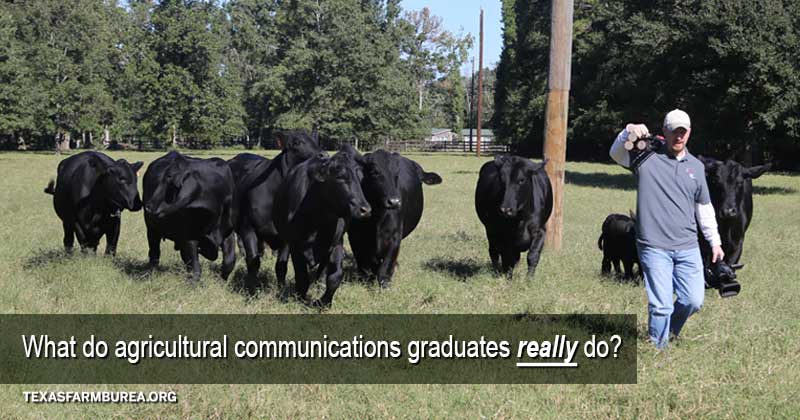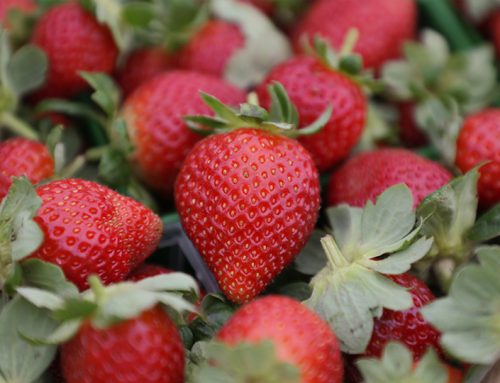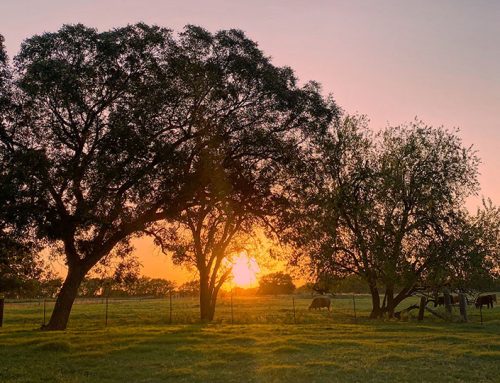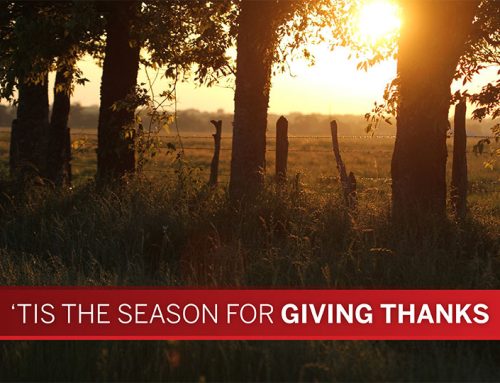By Elaine Jackson
I did it. I made the move to Stephenville, and I’m starting my time as a college student at Tarleton State University.
Now, life is full of new things—new town, new dorm, new roommate. It’s also full of new choices, especially when it comes to college majors.
There are too many to count when it comes to picking a degree to pursue, but I chose agricultural communications.
It’s a perfect fit for me, because it combines my passions and interests.
My passion for agriculture was sparked at a young age when I became heavily involved in showing livestock through 4-H and FFA. In high school, I developed a strong interest in media, marketing and communications.
But what does an agricultural communications major actually do?
No, we don’t talk to cows. But we do communicate a lot and through a variety of ways.
As a future agricultural communications graduate, I’ll have many options for a career. Like one of these five…
1. Journalism: Knowing how to write and tell a story is just as important today as it was 50 years ago. You can be a news anchor, a reporter, a radio personality or a blogger. Telling agriculture’s story takes many voices.
2. Social Media: Facebook. Twitter. Instagram. SnapChat. LinkedIn. The networks are endless. The audiences are different. But the messages are the same. Being an agricultural communications major, you learn about this “new media” and how to use it to help foster an understanding of agriculture and what farmers and ranchers do.
3. Graphic Design: Bringing a concept to life is more than just photos and words. It’s a design that summarizes your ideas and concepts in a way that’s easy on the eyes. And maybe a little snazzy, too. From publications to fliers or business cards to websites, graphic design is a key element, and that’s no different for agriculture.
4. Public Relations/Marketing: It’s often a job that gets a bad reputation, but PR in agriculture is more about simplifying the messages. You take an emotionally-charged issue, like our food, and help bring clarity to the situation. PR and marketing encompass direct communications, press conferences, answering reporter’s questions and helping others tailor and deliver the key messages.
5. Industry Relations: State, national or global, managing issues and relationships with other organizations, farmers and consumers is of the utmost importance. We’re all connected, and strong bonds are essential to keep us tied together.
Fellow students and I take the sidewalks to class, challenge our skills in the classroom and harness our passion to help bridge the gap between farmers and consumers. We take complex topics—like GMOs or genetics—and make them easier for all of us to understand.
Agricultural communications is a career path with so much to offer—more than just the five careers I listed. And you don’t have to come from a farm or ranch to fit in. We’re all here learning together about agriculture, our food and our part in it all.
Check out the agricultural communications degree at a college near you!
Elaine Jackson is a student at Tarleton State University majoring in agricultural communications.










Excellent article. So proud of you for your continuing intetest in agriculture.
Wishing you the best in your pursuits.